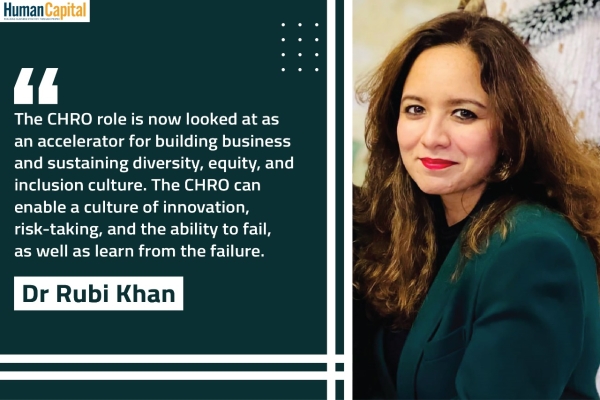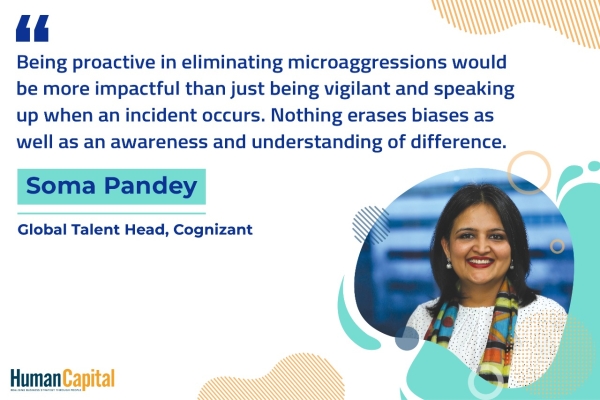Leaders have complex ideas about who they are and what they are required to do. The complexities of self-concept are critical organising influences of an individual leader's development as a global leader.
The chief qualification of a mass leader has become unending infallibility; he can never admit an error – Hannah Arendt
The internet led revolution has heralded a new era of young leaders, virtual offices, global pricing, and thereby altered the very way in which businesses grow and enhance revenue. The economic environment is less about ownership and old-fashioned capitalism than about sharing, thus moving away from the traditional pyramid corporate structure to cloud enabled platforms.
While the internet has broken the shackles of monopolisation and capital access, it has also brought people and networks closer than ever before in a value creation exercise. It has introduced significant changes in human behaviour, and the consequences on power and leadership structures in the new economy.
Arendt’s Beliefs
Hannah Arendt, a prominent German-American philosopher, has stated that the human condition can be understood through the three-fold interaction of labour, work, and action.
◆ Labour allows humans to meet their basic biological needs.
◆ Work “provides an ‘artificial’ world of things, distinctly different from all natural surroundings…[and] the human condition of work is worldliness” which provides humans with the ability to procure wants, instead of only meeting basic needs.
◆ Action occurs without desire for meeting basic needs or wants, but is undertaken in recognition of the multiplicity of man’s existence.
Arendt writes, “Action, the only activity that goes on directly
between men without the intermediary of things or matter, corresponds to the human condition of plurality, to the fact that men, not Man, live on the Earth and inhabit the world.”
Through action, human beings have the opportunity to insert themselves in the common world and interact with others, to engage new experiences, and to embrace new opportunities that permit the shaping of diverse worldviews. By engaging in new experiences and interacting with man’s plurality, we experience a sense of natality through action. And in today’s networked world, it has never been more obvious. Communication, interaction, and exchange are immediate and global. As we immerse ourselves into new situations; interpersonally or organisationally, we experience a sense of newness, a birth, that brings new perspectives and insights to the creation of our own identities and a larger sense of existence. And these can be experienced in the day’s internet economy, where Facebook, Google, and Amazon have changed the way human beings interact, transact, and work.
Arendt describes the interactions of man within the world as a web of relationships. Within this web exists narratives or stories that ground our actions and function as moral guide posts. The world then implies where we exist and also how we exist. The internet economy has created a world where relationships, networks, and connectedness have led to mass actions and crowd sourcing.
Authentic and Toxic Leadership
In her article titled “The Authenticity Paradox” in the Harvard Business Review, Professor Herminia Ibarra writes that authenticity can inhibit our ability to evolve, to expand beyond our comfort zone, and ultimately, to adapt to new challenges. While companies have encouraged leaders to discover and promote their “true-self” as a way to restore trust in management, and to increase employee engagement, Herminia proposes leaders to empirically try multiple versions of their “self” to help define an “adaptive self” that can evolve according to new challenges.
The idea of a person showing different aspects of her personality - keeping aside personal and professional personas - into a celebrity in the cyber space seems enigmatic. Worse yet, it may seem narcissistic and even sinister–a lot like Harry Potter’s Lord Voldemort, who breaks his soul into seven farflung pieces in an attempt at immortality.
The internet has fuelled an economy of self-promotion, self-grandiosity, and immediate gratification. PR driven polls and surveys measure the most influential leaders on social media, who are then lauded through award ceremonies. This has led to people putting up their better selves online.
In India, we have witnessed the impact of multiple personalities through the cases of Asaram Bapu and Radhe Maa. These self-professed “spiritual leaders” with a humongous following later emerged as nebulous personalities with allegations of sexual assault, money laundering, and various other criminal activities. In the recent past, we have witnessed dramatic examples of social-media-enabled revolutions, viz. Arab Spring and Occupy Wall Street - crowdsourced revolts without a distinct agenda or obvious leader. In India, however, we witnessed a porn ban by the government that was reversed within 72 hours, due to outrage on social media. Here the leaders and prime motivators were not political leaders, but website followers pushing for a turnaround.
Followings in Social Media
An important dimension to the leaders of the cyberworld is the power they exert over the followers. Power and leadership are connected. A good leader who uses situational leadership may use different kinds of power in different circumstances. Take the instance of a high school teacher, who adjusts her method of teaching based on the attitude of the learners and the medium used. Thus, a good leader is able to well utilise the interest of his/her followers to persuade them to do what is deemed as right.
Additionally, leaders have complex ideas about who they are and what they are required to do. It even affects global leaders. The complexities of self-concept are critical organising influences of an individual leader’s development as a global leader. The complex self-concepts of global leaders drive greater sense-making, sense giving, and overall effectiveness in the complex cultural environments in which they operate. This internal struggle and the ever-changing personality of leaders, gives them a new face every time - a new identity.
The advent of social media has further intensified this issue. The need to be constantly in the limelight and to seek attention has caught on. This is apparent from recent trends in social media habits like ‘Instagram-ing’ and ‘Selfies’ and ‘Checking in on Social Media’. The driving force behind these is the approval and attention of their so called followers. This has a connect to the thoughts echoed by Hannah Ardent while explaining the concept of Totalitarian. Hannah Arendt in her book, “The Origins of Totalitarian,” argues that totalitarian movements owe their strength not to the collusion of mob and bourgeoisie, but rather to the entirely “selfless” adherence of another fraction of the population, the group she calls the “masses.” These “masses” for Arendt are neither the population at large, nor the members of any particular social class. According to her, “masses” are agglomerations of individuals, not belonging to any settled class or other stable social interest group.
As the social media image is created largely due to one’s profile, there are many ways of only putting your best foot forward. The leaders can often create a fantasy world of their own, and change their colours like a chameleon, as per the need of the hour. Take the case of the Housing.com, an Indian startup. There was a lot of online drama due to its exCEO, Rahul Yadav, who was known more for his tiffs with the venture capitalists than his leadership. His social media profile showed obscene photographs and his tall promises to employees and partners alike were vastly different from the reality. After a series of controversies, investors of Housing.com, whom he had once abused, fired Yadav. He later posted on his social media page regarding his new venture, “All Indian internet companies put together < My next venture. Let me show you a good game this time! Not to earn money but just to show you guys that it can be done. And, that too without sweating much!” Thus, he created a very different image online versus how the media projected him, and how he actually was in his real life.
The digitally connected world today allows leaders to have multiple personalities as it suits them. The high hysteria around a star and the hype they have leads them to believe they are akin to God. They can do what pleases them, they are the master of their destiny and can rule the roost. Their momentary success is largely determined by the masses’ approval of the same.
Let us look at the example of Sir Richard Branson, the founder of Virgin Group, who manages the group as well his multiple identities on various social networking sites. A position of power comes with the responsibility of keeping up with the trends and react in real time. It is like the followers are just waiting to hear from him. And he delivers. While his real life might or might not match to the positioning created online, it certainly works for the followers.
In all, social media has become a necessary social evil, connecting leaders and providing an opportunity to many entrepreneurs and businessmen to genuinely connect with people who would otherwise have been unreachable. But, with this reach comes the responsibility of actually delivering and remaining truthful to the audience. After all, the show must go on. At the end of the day, it is the true face and the truth that shall prevail. Truth cannot be hidden for long, and it is only a matter of time, before the so called masses, figure out the true leader of the pack.
Do you think hybrid work arrangements would be a common feature of the workplaces going forward?
Trending
-
SBI General Insurance Launches Digital Health Campaign
-
CredR Rolls Out 'Life Happens' Leave For Its Employees
-
Meesho Announces 30-Week Gender-Neutral Parental Leave Policy
-
Microsoft Unveils Tech Resilience Curriculum To Foster An Inclusive Future
-
60% Indian Professionals Looking For Job Change Due To COVID: Survey
-
SpringPeople And Siemens Collaborate For Digital Transformation Push
-
86% Professionals Believe Hybrid Work Is Essential For Work Life Balance: Report
-
Almost 1 In Every 3 People's Personal Life Affected Due To Work Stress
-
Meesho Rolls Out Reset And Recharge Policy For Employees
-
80% Of Talent Leaders & Academics Say Pandemic Changed Skill Needs For Youth: Report
-
Hero Electric Rolls Out 'Hero Care' Program For Employees
-
Human Capital In Collaboration With ASSOCHAM Hosts Virtual Conference
-
IKEA India, Tata STRIVE Collaborate To Create Employability And Entrepreneurship Opportunities
-
SAP India, Microsoft Launch Tech Skilling Program for Young Women
-
DXC Technology, NASSCOM Collaborate For Employability Skills Program
-
Lenskart To Hire Over 2000 Employees Across India By 2022
-
Mindtree Launches Learn-and-Earn Program
-
Tata AIA Extends 'Raksha Ka Teeka' To Its Employees
-
Swadesh Behera Is The New CPO Of Titan
-
NetConnect Global Plans To Recruit 5000 Tech Professionals In India
-
Hubhopper Plans To Hire 60% Of Indian Podcasters By 2022
-
Corporate India Needs More Women In Leadership Roles: Report
-
Aon to Invest $30 Million and Create 10,000 Apprenticeships by 2030
-
Tech Mahindra Launches ‘Gift a Career’ Initiative for Upskilling of Youth
-
40% Women Prefer Flexible Working Options in Post-COVID World: Survey
-
3 out of 4 companies believe they can effectively hire employees virtually: Report
-
Vodafone , CGI and NASSCOM Foundation launch digital skills platform
-
Odisha: Bank, postal employees to deliver cash for elderly, differently-abled persons
-
Skill India launches AI-based digital platform for "Skilled Workforce"
-
Hiring activity declines 6.73% in first quarter: Survey
-
70% startups impacted by COVID-19 pandemic
-
Bajaj Allianz Life ropes in Santanu Banerjee as CHRO
-
Over 70 Percent MSMEs look at cutting jobs to sustain businesses
-
93 Per Cent employees stressed about returning to office post-lockdown
-
Johnson & Johnson India announces family benefits for same gender partners
-
Indian firms turning friendly towards working mothers
-
Welspun India names Rajendra Mehta as new CHRO
-
Wipro partners with NASSCOM to launch Future Skills platform



Human Capital is niche media organisation for HR and Corporate. Our aim is to create an outstanding user experience for all our clients, readers, employers and employees through inspiring, industry-leading content pieces in the form of case studies, analysis, expert reports, authored articles and blogs. We cover topics such as talent acquisition, learning and development, diversity and inclusion, leadership, compensation, recruitment and many more.
Subscribe Now


.PNG)









































Comment